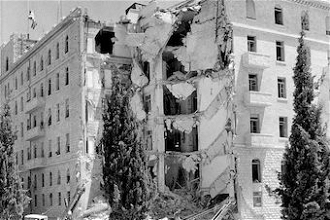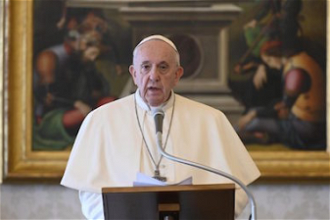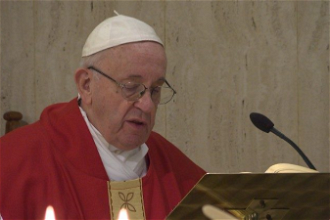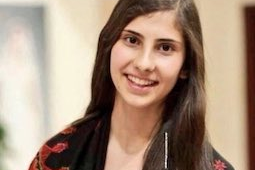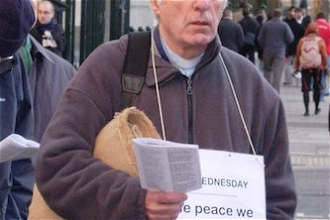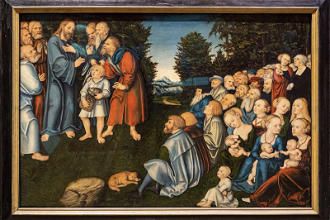Pope Francis asks: What will our legacy be?
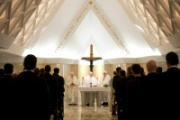
Casa Santa Marta
To live our whole life within the Church, as sinners but not as corrupt traitors, and with an attitude of hope that allows us to leave a legacy, not of material wealth, but of a witness to holiness. Pope Francis reflected on these 'great graces' at the Mass he celebrated on Thursday morning, 6 February, in Casa Santa Marta.
The Holy Father focused his homily on the mystery of death, referring to the First Reading (Kings 2:1-4,10-12) in which he said, “we hear the story of David’s death”. “We remember the beginning of his life, when he was chosen and anointed by the Lord”, when he was just “a little boy”. “After only a few years he began to reign”, but he was still only “a boy, at 22 or 23 years of age”.
David’s whole life was “a path, a journey he had made at the service of his people”. And “it ended just as it had began”. It is the same with our lives, said the Pope. In our lives too we “begin, walk, go forward and finish”. Thinking of David’s death “from the heart”, the Pope offered three points of reflection. First, he pointed out that “David died in the bosom of the Church, in the bosom of his people. Death did not find him outside of his people” but “within”. In this way he lives “belonging to the people of God”. It is true that David “had sinned: he called himself a sinner”. But “he never left the People of God: he was a sinner, yes, but not a traitor”. This, the Pope said, “is a grace”. The grace to “remain in the People of God till the end” and “to die in the bosom of the Church, right in the midst of the People of God”.
Highlighting this aspect, the Pope invited everyone “to ask for the grace of dying at home: dying at home, within the Church”. He remarked that “this is a grace” that you “cannot buy” because “it is a gift from God”. We “ought to ask: Lord, grant me the gift of dying at home, within the Church”. Even if we are “all sinners”, we must never be “traitors” nor “corrupt”.
The Church, the Pope explained, “is a mother and wants it to be so”, even if “at many times dirty”. For it is she who “cleanses us: she is our mother, and she knows how to do so”. But it is up to us to “ask for this grace of dying at home”.
Pope Francis then proposed his second thought about David’s death. “In this story”, he noted “you can see that David is quiet, peaceful, and serene”. To the point where he “calls upon his son and says: I want to go the way of every man on earth”. In other words, David acknowledges: “now it is my turn!”. We then read in Scripture that “David slept with his fathers”. The king, the Pope explained, “accepted his death with hope, in peace”. And “this is another grace: the grace to die with hope”, with the “awareness that this is only a step” and that “we are awaited on the other side”. Indeed, even after death there will be “home, there will be family, I will not be alone!”. It is a grace to be sought especially “in the last moments of life, because we know that life is a struggle and that the evil spirit takes the spoils”.
The Holy Father also recalled the testimony of St Therese of the Child Jesus, who “said that, at the end of her life, there was a struggle in her soul, and when she thought about the future, about what awaited her after death, in heaven, she felt as if a voice was saying: but no, don’t be silly, darkness awaits you, only the darkness of nothing is awaiting you”. That, the Pope said, “was the devil who did not want her to trust in God”.
Therefore it is importance to “ask for the grace to die with hope, trusting in God”. But “trusting in God”, the Pope said, “must begin now, in life’s little things, and also in the big problems: we must always rely on the Lord. In this way, trusting the Lord becomes a habit and hope springs forth”. Therefore “to die at home and to die with hope” are “two things that we can learn from David’s death”.
The third reflection Pope Francis shared was that of “the problem of legacy”. In this regard, “the Bible”, he explained, “tells us that when David died, all of the grandchildren and great-grandchildren came to ask for their inheritance!”. There are often “many scandals concerning inheritance, scandals that divide families”. But the inheritance that David leaves behind is not wealth. We read in the Scriptures: “And his kingdom grew strengthened”. David had “left a legacy of 40 years of government to his people and the people were strengthened”.
The Holy Father recalled “a popular saying” which says that “every man should have a child, plant a tree and write a book, so as to leave the best legacy”. The Pope invited everyone to ask themselves: “What legacy will I leave to those who come after me? Will I leave a legacy with my life? Have I done so much good that people want me as a father or mother?”. Perhaps I have not “planted a tree” or “written a book”, “but have I provided wisdom in life?”. The real “legacy is that of David” who on the verge of death told his son Solomon: “You are a strong and capable man. Obey the law of the Lord, your God, proceeding in his ways and executing his laws”.
David's words help us to understand that the real “legacy is the witness we leave to others as Christians”. There are indeed some people who “leave great legacies: we think of the saints who lived the Gospel with such force ... leaving us a way of life, a way of living life as a legacy”.
In conclusion the Pope summarized his three points and turned them into a prayer to St David, that he “grant us these three graces: to ask for the grace to die at home, within the Church; to ask for the grace to die with hope, with hope; and to ask for the grace to leave behind a beautiful legacy, a human legacy, a legacy made from the witness of our Christian life”.
Source: VIS



